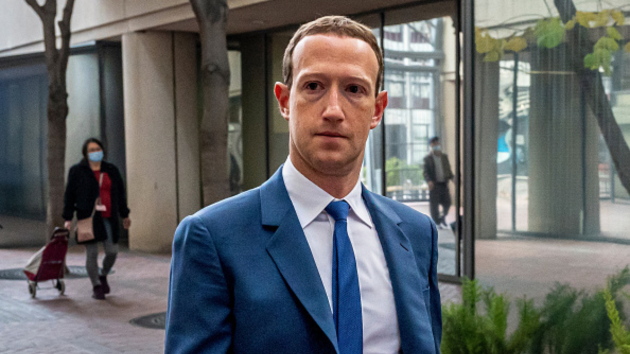A potential Trump-Biden contest could hinge on the economy. Here’s how their plans differ.
Written by ABC Audio ALL RIGHTS RESERVED on January 30, 2024
(NEW YORK) — Former president Donald Trump trounced his Republican opponents in the first two primary contests, setting the course for a potential general election rematch with likely Democratic nominee President Joe Biden.
The decisive issue, according to polls, may prove to be the economy. Seventy-four percent of Americans say the economy is very important to them, making it the top concern among voters, an ABC News/Ipsos poll in November found.
Biden and Trump contrast sharply on topics that intimately affect everyday people’s finances, including taxes, jobs and trade. Neither candidates’ campaign responded to ABC News’ request for comment.
Here’s what to know about key economic proposals put forward by the rival presidential candidates:
Taxes
Biden has sought to raise taxes on wealthy people and some corporations in what he considers an effort to bring fairness to the tax code.
On the other hand, Trump appears poised to preserve or deepen tax cuts that he views as a catalyst for economic growth.
Trump is committed to extending the tax cuts signed into law during his first term when they begin to phase out in 2025, Stephen Moore, who served as an economic adviser to Trump and says he has helped shape Trump’s agenda for a possible second term, previously told ABC News.
The administration may seek to cut taxes further but details of such a proposal remain uncertain, Moore said.
“This is all in motion,” Moore added. “Nothing has been decided.”
By contrast, the Biden administration has proposed tax hikes for wealthy people and indicated a preference for allowing some of the Trump tax cuts to lapse.
For example, Biden could oversee the expiration of a 20% tax deduction for specific income generated at pass-through businesses, such as sole proprietorships, that file taxes through a personal owner. The move would effectively amount to a tax increase for those companies.
Targeting high-net worth individuals, meanwhile, Biden could impose a first-of-its kind wealth tax.
Last year, Biden proposed a 2024 tax plan that included a 25% tax on the wealth of individuals with a net worth exceeding $100 million. The plan, Biden said, would apply to 0.01% of Americans.
“I’m a capitalist, but pay your fair share,” Biden said in his State of the Union address last year.
The currently divided Congress may not pass such a tax hike but Biden could pursue it if granted a second term.
Trade
While the Biden campaign has not put forward an agenda for trade policy under a second term, his administration has so far taken up an aggressive posture toward some adversarial countries like China while reaching trade deals with others.
Biden preserved the tariffs imposed by Trump on Chinese imports, escalating the confrontation with China through additional measures, such as a ban on the export of advanced chips to the country.
On the other hand, the U.S. in recent years has reached trade agreements for some goods with neighboring countries Taiwan and Japan. In December, the Biden administration extended a suspension of Trump-era tariffs on steel and aluminum from Europe, but the White House has established a permanent agreement to do away with the levy.
For his part, Trump plans to ratchet up the confrontational trade policy instituted during his first term, promising to impose tariffs on most imported goods.
Speaking with Fox Business in August, Trump said the tax on imported items could ultimately stand at 10%.
Trump also plans to tighten constraints on China-made products, including a “4-year plan to phase out all Chinese imports of essential goods,” according to a set of proposals released in February.
Jobs and manufacturing
Both candidates tout their bonafides as job creators who nurture the growth of U.S. manufacturing. But they have carried out very different approaches to doing so.
The Trump campaign has presented its tariff policy as a means of protecting U.S. businesses, thereby ensuring a robust job market and a bolstered domestic supply chain.
“Trump wants jobs here in America,” Moore said. “He wants things made in America.”
The Biden administration, by contrast, has enacted federal legislation that brings investment to U.S. companies and in turn boosts the demand for workers.
Speaking at the Economic Club of Chicago last week, Treasury Secretary Janet Yellen pointed to several measures signed into law by Biden that have brought investment to projects focused on infrastructure, computer chips and clean energy.
“These investments will fuel our economic growth and increase our economic security,” Yellen said.
Copyright © 2024, ABC Audio. All rights reserved.






